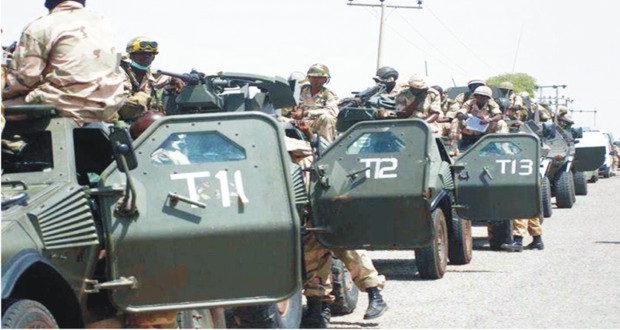Brigadier-General Sani Usman (rtd), has enumerated ways relationship between the military and the media can be improved in conflict reporting.
Usman, who was the Director, Army Public Relations between 2015 to 2019, made this known at a two-day Capacity Building Workshop on Conflict Reporting for Journalists in Abuja.
The retired General noted that over time, the media-military relations in the country had always been characterized by mutual suspicion and lack of understanding.
“ The suspicion against the media is not out of place because they tend to report sensationally, oblivious of the impact and consequences of their actions, thus jeopardizing military operations, compromising national security, or even the lives of troops and citizens.
“ For instance, on December 30th, 2018, a newspaper carried a story on planned military operations against Boko Haram terrorists in Baga, Borno state,”he said.
According to him,this explains why the Nigerian military service media public relations departments strive to professionalise and strengthen their media relations practice.
These, he said, were geared towards fostering better relations between the military institutions and the media.
Usman said to bridge the gap between the military and the media, two strategic approaches could be adopted.
“The first is to build a consensus between the military and the media on what constitutes conflict resolution and how it can be achieved.
“ This can be pursued through continued engagement involving media executives and military officers.
“The second is sustained and continuous training programme for defence correspondents on coverage of conflicts and military operations.
“This would provide an opportunity to understand the workings of the military, its organization, capabilities, challenges, sensibilities, protocols and how the media can seek and get information from the military in a conflict environment,” he said.
The retired-General, who called on the military to be more open, urged the media to be more trusting.
He also advised the media to exercise discretional self-censorship, crosscheck stories before broadcast, publishing or dissemination.
“There should be more comprehensive approach to warfare and military operations by embedding press in military operations.
“ The media should do more of investigative journalism rather than reporting as breaking news because background information is essential.
“There is a need for a National Media and Information Literacy Policy in Nigeria to enhance media performance, he suggested.
Usman urged the government and the media to be partners in pursuing national security and national interest.
Commandant, Peace and Conflict Management Department, Nigerian Security and Civil Defence Corps(NSCDC), Mr David Ojelabi, said “war and violence rarely answer anything-but when they happen, journalists and other media staff have a crucial role in cutting through the fog of deception, lies and manipulation of information that inevitably follows”.
He said the task of media practitioners was to show the impact on the lives of the ordinary people.
The Director of Amnesty International Nigeria,Osai Ojigho, said, “journalists, media professionals and associated personnel engaged in professional missions in areas of armed conflict shall be considered as civilians and shall be respected as such, provided that they take no action adversely affecting their status as civilians”.
The programme was organized by Konrad-Adenauer Stiftung (KAS), in conjunction with the Premium Times Centre for Investigative Journalism(PTCIJ).

